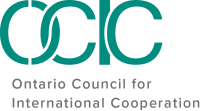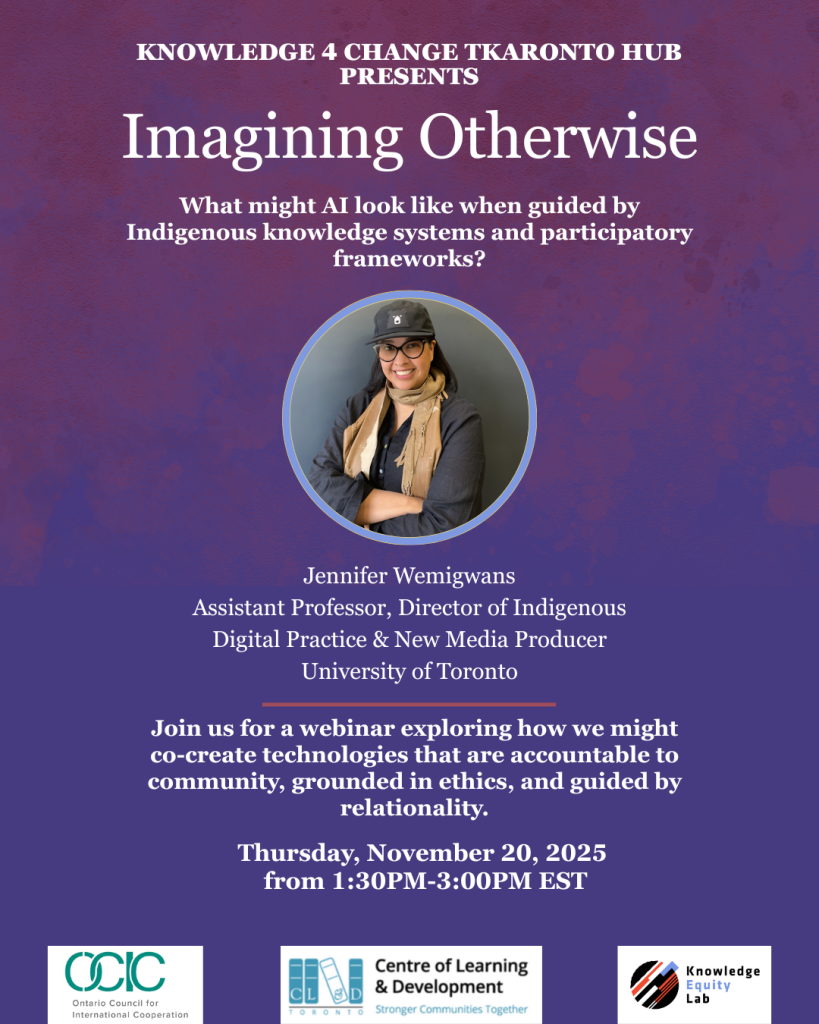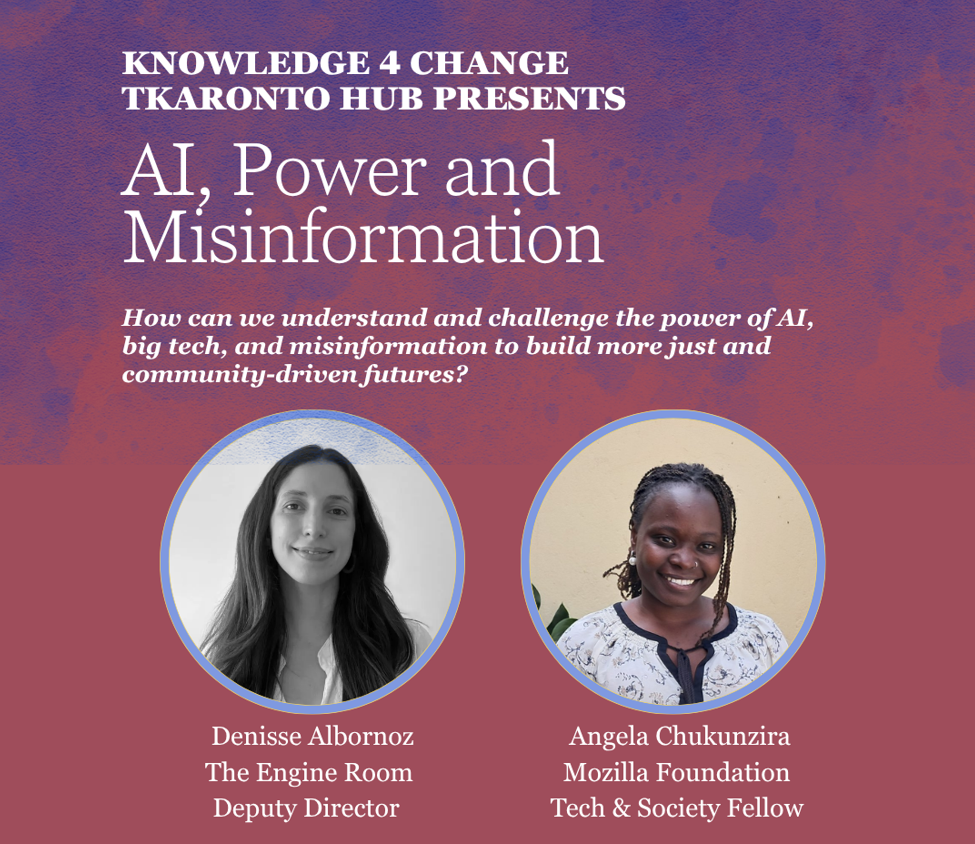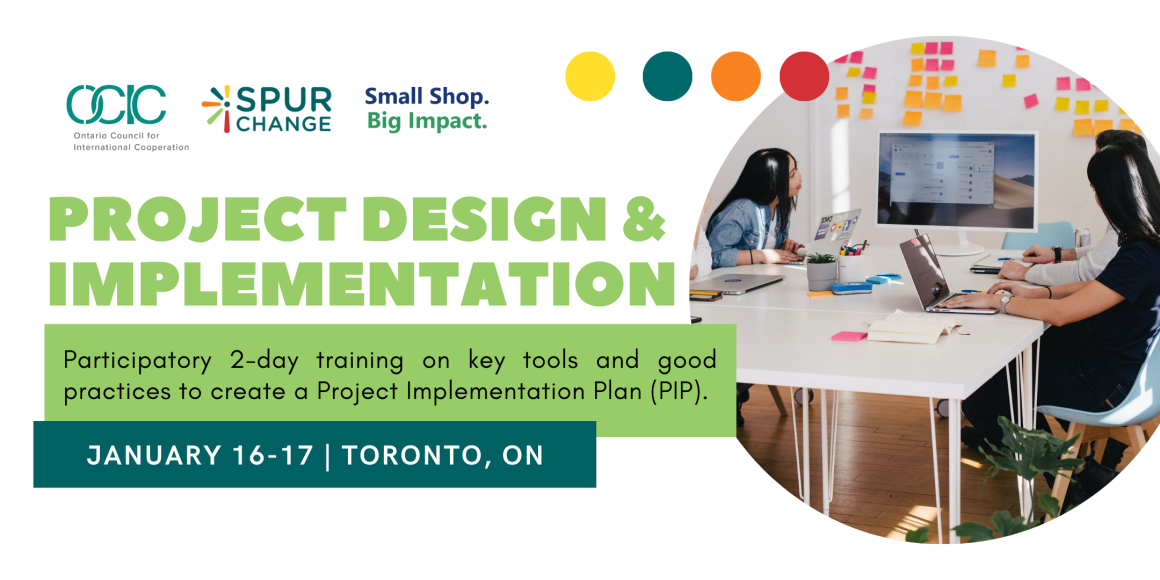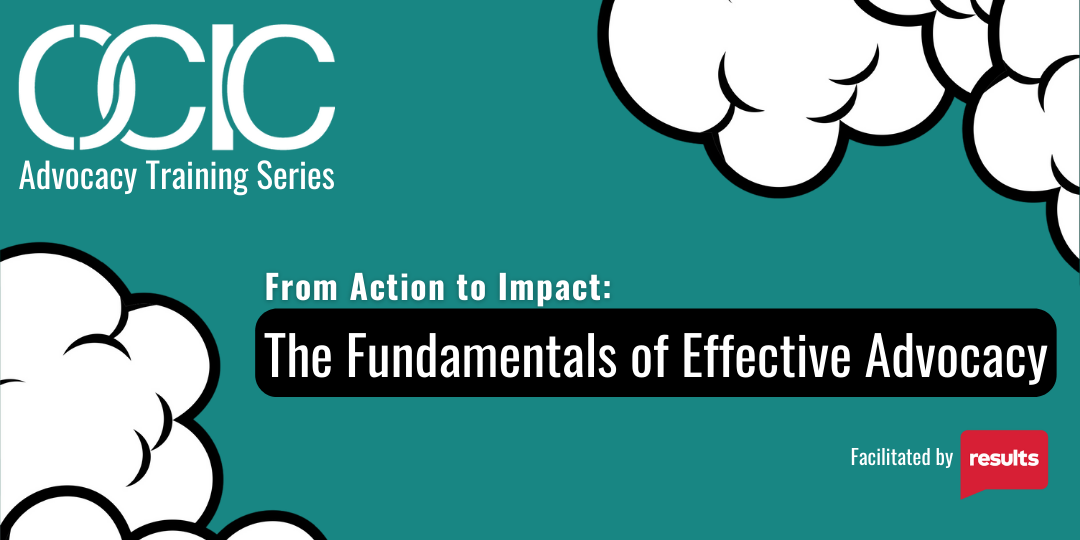Imagining Otherwise
Presented by the Knowledge 4 Change Tkaronto Hub
What might AI look like when guided by Indigenous knowledge systems and participatory frameworks? Centering Indigenous, participatory, and anti-colonial perspectives, this webinar will spark imagination for how we might co-create technologies that are accountable to community, grounded in ethics, and guided by relationality.
Event postponed – new date coming soon!
About the Speaker
Jennifer Wemigwans, Assistant Professor in the Department of Leadership, Higher and Adult Education at OISE
Jennifer (she/her) is an Assistant Professor in the Department of Leadership, Higher and Adult Education at the Ontario Institute for Studies in Education. She teaches Indigenous Knowledge Education courses in the Adult Education & Community Development Program. Dr. Wemigwans is from Wikwemikong Unceded Territory on Manitoulin Island, Ontario. She is a new media producer, writer and scholar specializing in the convergence between education, Indigenous Knowledge and new media technologies. Her book, A Digital Bundle: Protecting and Promoting Indigenous Knowledge Online (2018) explores the prospects of Indigenous Knowledge education and digital projects in a networked world.
About the K4C Tkaronto Hub
The K4C (Knowledge For Change) Tkaronto Hub was co-founded in the summer of 2019 by the Knowledge Equity Lab at University of Toronto Scarborough, OISE at the University of Toronto, Toronto Centre for Community Learning & Development (CL&D), and the Ontario Council for International Cooperation (OCIC). The K4C Tkaronto Hub is part of the global K4C Consortium, which includes 22 Hubs around the world in Canada, Colombia, Cuba, India, Ireland, Italy, Malaysian, Mexico, South Africa, Tanzania, Uganda and the United States of America.
Our collective goal is to enable transformative change by providing accessible opportunities for students, educators, academics, community development and international cooperation practitioners in the Greater Toronto Area region and beyond to learn about CBPAR, and to facilitate community-academic partnerships to carry out CBPAR projects. You can see examples of our previous CBPAR projects here.
